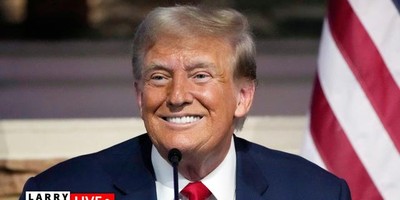“The president has made it very clear that we are going to be the Bitcoin superpower of the globe,” Bo Hines said in a recent interview with Anothony Pompliano. Hines is the executive director of The President’s Working Group on Digital Asset Markets, established by the president’s first crypto executive order, Strengthening American Leadership in Digital Financial Technology. “We’ve had to start with the demolition phase,” continues Hines, “basically rescinding all of these nasty regulations the Biden administration implemented which stifled growth.” The executive order called on each agency in the working group to enumerate all policies affecting the digital asset sector after 30 days and to make recommendations about those policies within 60 days.
The working group has been “moving at tech speed” when evaluating existing regulations and has made substantive reversals in policy. Here are some early wins:
SAB 121 Repeal – Removes Burdensome Requirements for Banks Holding Digital Assets
In keeping with President Trump’s campaign promise made at Bitcoin 2024 to end Operation Choke Point 2.0 – an unofficial Biden Administration policy of depriving the digital assets industry of banking services as a way to inhibit their growth – the SEC repealed SAB 121. Staff Accounting Bulletin 121 required any crypto custodian to count customer owned crypto-asset as a liability on their corporate balance sheet and increased capital reserve requirements for those assets.
SEC Dismissal of Coinbase and Kraken Cases - Ends Regulation by Enforcement
In February and March, the SEC dismissed their civil enforcement actions against crypto exchanges Coinbase and Kraken over the alleged sale of unregistered securities. In my opinion, these exchanges almost certainly sold coins which should fail the Howey Test for determining whether the asset is or is not a security, but the Trump administration seems to be sending a message that the Biden era of “Regulation by Enforcement” is over, and that clear rules of the road will be established before punitive actions will be pursued.
Repeal of the DeFi Broker Rule - Frees Digital Wallet Providers from Mandate to Report KYC Data to the IRS
Recommended
On March 4th, David Sacks announced the administration’s formal support of joint resolution S. J. Res. 3, citing the rule’s likelihood to stifle innovation, privacy concerns, and compliance burdens. The rule expanded the definition of broker to encompass front end service providers for DeFi transactions. Any custodial wallet would now be required to track and submit Know Your Customer Data and gross proceeds of digital asset sales to the IRS. On April 10th, President Trump signed H.J.Res. 25 into law, which not only repeals the rule but also blocks the IRS from issuing a substantially similar rule without new congressional authorization.
OCC Rescinds Letter 1179 - Cuts Red Tape Required For Banks to Interact with Digital Assets
On March 7th, the OCC rescinded Interpretive Letter 1179. 1179 references three prior letters discussing ways in which banks may participate in Digital Asset networks: whether banks may provide crypto asset custody services, use dollar deposits to back stablecoins, or run a node in an independent node verification network. Letter 1179 dictates a bank’s practices be evaluated and approved by its supervisory office prior to interacting with digital assets. Again nothing here is outright banned, but there was a concerted effort under the Biden administration to dissuade the adoption of these technologies via red tape and regulatory confusion.
“Due to lawfare and the reckless nature of our regulators, a lot of this innovation has gone offshore,” explained Hines to Pompliano, “and we want to make sure we can repatriate that innovation back to the U.S., and that these players can harness the U.S. capital markets.”
There is evidence that the administration's actions are already having a positive impact on reshoring digital asset innovation. Phoenix Wallet is now back serving US Customers. Phoenix Wallet had left the US market due to regulatory uncertainty in the wake of the indictment of Samourai wallet developers. In April of last year, Samourai Wallet developers Keonne Rodriguez and William Lonergan Hill were arrested and charged with operating an Unlicensed Money Transmitting Business. The company behind Phoenix Wallet, ACINQ, removed Phoenix from U.S. app stores within 24 hours. They explained their decision on X, “Recent announcements from US authorities cast a doubt on whether self-custodial wallet providers, Lightning service providers, or even Lightning nodes could be considered Money Services Businesses and be regulated as such.”
A few weeks ago, ACINQ announced they were once again supporting U.S. customers: “We welcome the ‘Ending Regulation By Prosecution’ memo by the US DAG, and the clarity it provides for developers and operators of Bitcoin software… We are happy to make our products available again in the USA.”
While this is just one data point, forthcoming regulatory clarity will further increase the appeal of innovating in this space and integrating into the U.S. economy. The next milestone for the working group is the 180-day deadline for the comprehensive digital asset regulatory framework proposal. Hines said that the president wants market structure legislation on his desk by August, along with stablecoin legislation which is actively progressing through the House and Senate. These much anticipated rules of engagement are necessary for technologists and entrepreneurs to build the tools for American citizens to benefit from the digital revolution of finance.

























Join the conversation as a VIP Member